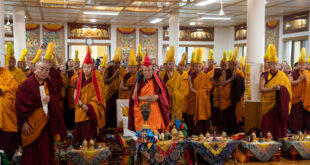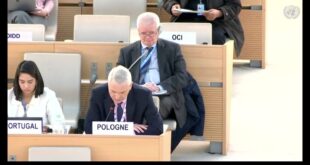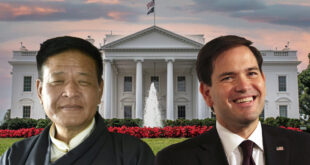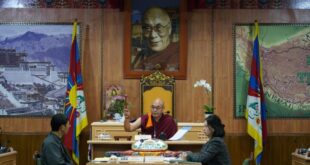December 11, 2011
We, the participants of the conference “Democracy and Human Rights in Asia: One Year after an Empty Chair in Oslo”, who have gathered here in Prague at the invitation of President Václav Havel wish to join in the international efforts to promote awareness and improve progress in human rights across the globe.
Yesterday, the 63rd anniversary of the Universal Declaration of Human Rights was commemorated worldwide. The Declaration affirms that all human beings have the right to freedom from want and freedom from fear. These rights are indivisible and universal.
In recent time the rise of economic development and strength of Asia have been the focus of much international attention. Regrettably, however, little importance and notice have been given to the sad and deplorable state of human rights in different parts of Asia. If we look at China, North Korea, Iran, Syria, etc., we see either stagnation or a change for the worse. Growing pragmatic silence fuelled by economic interests of some rich western countries is therefore a source of great concern for us.
A more open, free and democratic China is of great importance for Asia and the world as a whole. China needs human rights, democracy and the rule of law because these values are the foundation of a free and dynamic society. They are also the source of true unity and stability. It is clear and obvious that many Chinese have been carrying on a life and death struggle for democracy in China.
Against this background, the international community and in particular the free world has an obligation to support these people. It is our responsibility to do everything that keeps up their morale and strengthens their spirit.
With this spirit, we have come together to mark the first anniversary of the awarding of the Nobel Peace Prize to Liu Xiaobo, who – together with many other prisoners of conscience – remains imprisoned by the Chinese authorities.
Of equal importance for the international community is to encourage the signs of cautious change in the right direction in Burma. It is crucial that the international community adopts effective policies that encourage a meaningful and result-oriented dialogue between the Nobel laureate Aung Sun Sui Kyi and the Burmese authorities.
We are aware that the world will not change overnight by talking about human rights and democracy at conferences nor will it result in the immediate release of all prisoners of conscience. The reality is that in some cases there is little that can be done which immediately results in bringing about some positive changes. However, there are always ways and possibilities to make clear to the oppressed and persecuted that the world has not forgotten them and cares about their plight. These expressions of concern, support and solidarity are of immense importance in sustaining and strengthening the spirit and hope of the people who are engaged in the struggle for human rights and democracy even at the risk of imprisonment and endangering their own lives. It is these people who represent the forces that ultimately will achieve freedom, democracy and human rights.
Let’s use every possible occasion, every means we have at our disposal to help them in their noble struggle.
His Holiness the Dalai Lama
Václav Havel
Stéphane Hessel
Jianli Yang
Shirin Ebadi
Bernard Kouchner
http://www.forum2000.cz/en/projects/democracy-and-human-rights-in-southeast-asia/prague-declaration/



